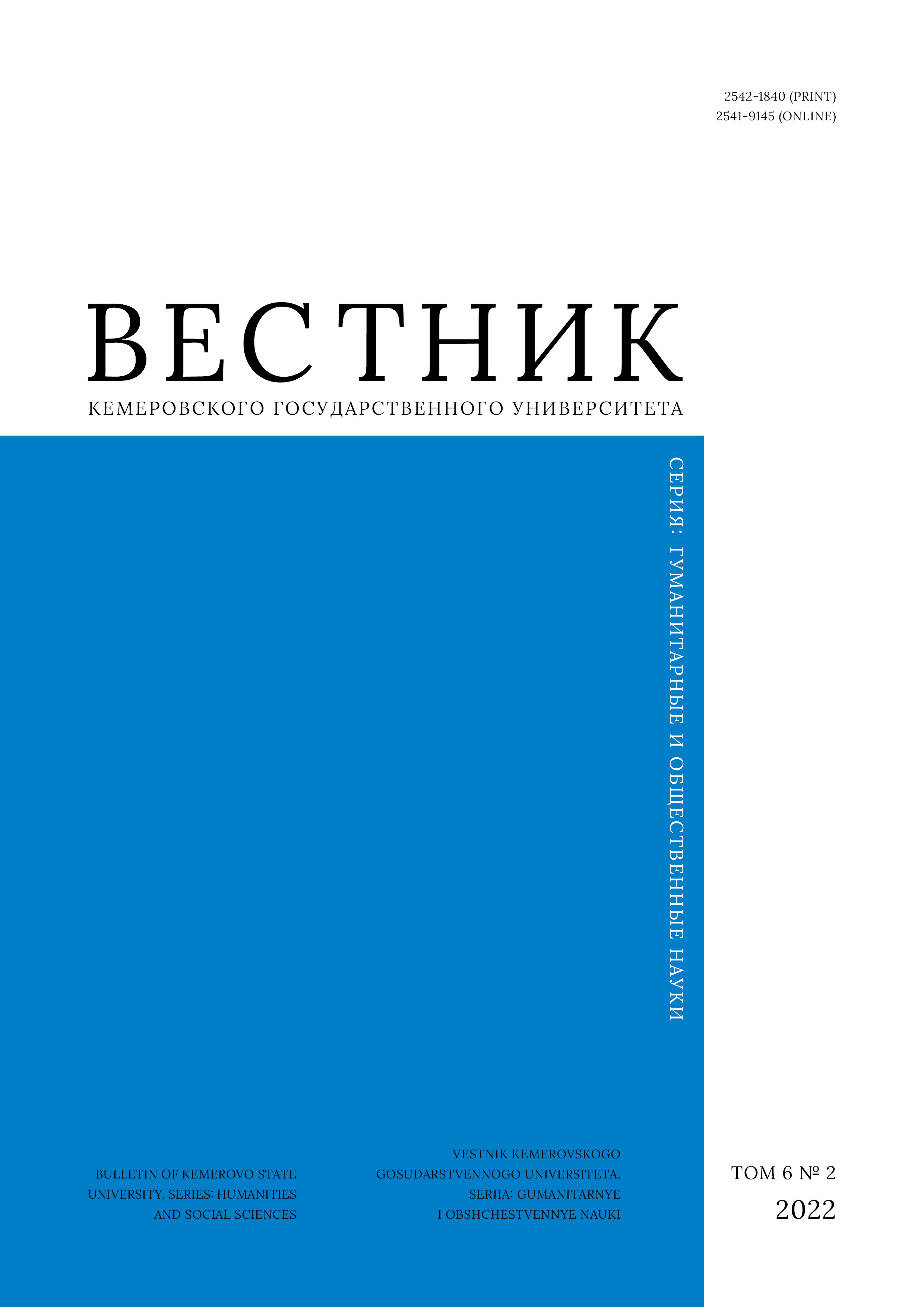Kemerovo, Russian Federation
Kemerovo, Russian Federation
The article deals with the concept of family life in juvenile offenders. Juvenile delinquency often has roots in family problems. Teenage criminals are known to express ambivalent ideas about family relationships. In this research, they described Mother as emotionally distant, undemanding, soft-hearted, uncooperative, lacking control, and inconsistent in her educational influence. Father was described as stern, demanding, even cruel, emotionally distant, and unaccepting. The research proved the ambivalent character of family concept in teenage criminals. They had more positive ideas about their own future family than about their life with parents. Most juvenile delinquents were eager to have their own family in the future. However, they hardly ever described themselves as a spouse or a parent. Their ideas about family relationships were blurred; they had a very poor understanding of family roles and tended to oppose their parental family to the family they imagined for themselves.
juvenile delinquents, family concept, family relationships, family problems, representation about parents, parent-child relationships, image of the mother, image of the father, image of the future
1. Aderkas A. M., Yanicheva T. G. Ideas about the style of parenting of younger adolescents of different sexes. Ananiev readings - 2019: psychology to society, state, politics: Proc. Intern. Sci. Conf., St. Petersburg, 22-25 Oct 2019. St. Petersburg: Skifiia-print, 2019, 50-51. (In Russ.)
2. Aderkas A. M., Yanicheva T. G. Interaconnection between agressiviness of younger adolescents and their ideas about relationships in the family. Uchenyye zapiski Sankt-Petersburgskogo gosudarstvennogo instituta psikhologii i sotsialnoy raboty, 2020, 33(1): 103-114. (In Russ.)
3. Atakhanov R. A., Abdurashitov N. F. Destructive child-parent relations and opportunities for adolescents to commit offenses. Psikhologiya. Istoriko-kriticheskiye obzory i sovremennye issledovaniya, 2017, 6(4A): 165-179. (In Russ.)
4. Belyaeva S. I. Inter-generational reproducibility of the destructive patterns of functioning in the families of delinquent adolescents. Med. Psihol. Ross., 2017, 9(1). Available at: http://www.mprj.ru/archiv_global/2017_1_42/nomer04.php (accessed 28 Mar 2022). (In Russ.)
5. Strelenko A. A. Problems of psychological safety children and adolescents in the family environment. Psychology of the family in the modern world: Proc. Intern. Sci.-Prac. Conf., Ekaterinburg, 18-19 Oct 2017. Ekaterinburg, 2017, 321-325. (In Russ.)
6. Bakhtina S. V., Zhirova A. N. Images about family and marriage of teenagers from full and domestic families. Meridian, 2020, (9): 271-274. (In Russ.)
7. Nabatnikova L. P. Contemporaneous teenager's family form. Researcher. European Journal of Humanities & Social Sciences, 2018, 1(1): 73-83. (In Russ.) http://dx.doi.org/10.32777/r.2018.1.1.7
8. Yeskendirov A. A. The illegal behavior of minors: causes and conditions for its formation. Vestnik Advanced Training Institute of the MIA of Russia, 2019, (1): 115-120. (In Russ.)
9. Pashko Yu. A., Zhukova T. V. Idea of the family at modern teenagers and young men. Actual problems of the psychology of education: Proc. Conf., Yaroslavl, 15 Oct 2016. Yaroslavl: RIO YSPU, 2016, iss. 8, 79-83. (In Russ.)
10. Kolesnikova G. I. Sociology and psychology of the family. 2nd ed. Moscow: Iurait, 2019, 263. (In Russ.)
11. Gorlova E. L. Family representations in adolescents of different psychological age. Kul'turno-istoricheskaya psikhologiya, 2018, 14(2): 24-32. (In Russ.) https://doi.org/10.17759/chp.2018140203
12. Pukhova T. I. Age and individual characteristics of the director's game in preschool age. Cand. Psychol. Sci. Diss. Abstr. Moscow, 2000, 24. (In Russ.)
13. Basin M. A. Formation of volitional regulation in adolescents with delinquent behavior. Cand. Psychol. Sci. Diss. Tula, 2006, 195. (In Russ.)
14. Evdokimova Yu. B. Idealized image of parents as a factor in deviant behavior of adolescents brought up outside the family. Cand. Psychol. Sci. Diss. Abstr. Kaluga, 2004, 19. (In Russ.)
15. Sergeeva T. Yu. Forming of juvenile offenders' positive representations on family relations. Izvestiya Rossijskogo gosudarstvennogo pedagogicheskogo universiteta im. A. I. Gertsena, 2008, (69): 487-490. (In Russ.)
16. Terekhina S. A. Images of the parental and future family of teenage girls with delinquent behavior. Cand. Psychol. Sci. Diss. Moscow, 2006, 196. (In Russ.)
17. Degtyareva O. L. Forming a juvenile delinquent's personality. Russian Psychological Journal, 2017, 14(1): 214-229. (In Russ.) https://doi.org/10.21702/rpj.2017.1.13
18. Tatarintseva M. S. The image of the parental and future family in adolescents with different types of social behavior. Education and science: issues of theory and practice: Proc. II Annual All-Russian Sci.-Prac. Conf., Moscow, 8 Feb 2015. Moscow: International institute of informatization and public administration named in the honor of P. A. Stolypin, 2015, iss. 1, 219-224. (In Russ.) https://doi.org/10.17415/conf-2015-1
19. Belyaeva S. I., Shchelkova O. Yu. The psychological features of the mothers of delinquent teenagers. Vestn. St. Peterb. un-ta. Ser. 12, 2011, (2): 74-80. (In Russ.)
20. Gustova E. A., Gubanov A. V., Zverkova S. N. Perception features of parents' image in adolescence. Humanity space, 2019, 8(3): 420-432. (In Russ.)
21. Kovanskaia N. V. Study of the etymology of antisocial behavior of adolescent delinquents. Studencheskii vestnik, 2019, (19 1): 53-55. (In Russ.)
22. Kopchenko I. E., Tvelova I. A. Family as a factor in the emergence and manifestation of aggression in adolescents. Designing educational systems in the context of the implementation of the Federal State Educational Standard: Proc. Intern. Sci.-Prac. Conf., Armavir, 26 Apr 2018. Armavir: RIO ASPU, 2018, 22-27. (In Russ.)
23. Ochilov A. Kh. Problems of the influence of an unhealthy family environment on the education of adolescents with deviant behavior. Priority directions for the development of science and education: Proc. XIV Intern. Sci.-Prac. Conf., Penza, 12 Sep 2020. Penza: Nauka i Prosveshchenie, 2020, 106-108. (In Russ.)
24. Kovtunenko L. V. Family as the factor of education and resocialization of juvenile delinquents. Vestnik Voronezhskogo instituta MVD Rossii, 2012, (3): 137-143. (In Russ.)
25. Shamovskaya T. V. Psychology of a teenager. Kemerovo: KemSU, 2019, 123. (In Russ.)


















